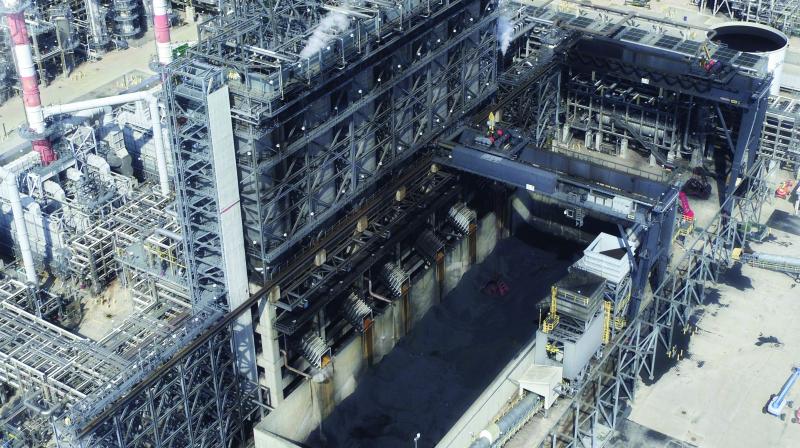Dirty US fuel exports choking India further

New Delhi: US oil refineries that are unable to sell a dirty fuel waste product at home are exporting vast quantities of it to India instead. Petroleum coke, the leftover from refining Canadian tar sands and other heavy crude, is cheaper and burns hotter than coal. But it also contains more planet-warming carbon and far more heart- and lung-damaging sulphur — a key reason few US companies use it.
Refineries are sending it around the world instead, especially to energy-hungry India, which last year got almost a fourth of the fuel grade “petcoke” the US ships, an Associated Press investigation found. In 2016, the US sent more than 8 million metric tons of petcoke to India — about 20 times more than in 2010, and enough to fill the Empire State Building eight times. The petcoke burned in countless factories and plants is contributing to dangerously filthy air in India.
Resident Satye Bir doesn’t know why Delhi’s air is so dirty, but feels fury and resignation. “My life is finished....My lungs are finished,” said Mr Bir, 63, wheezing and reaching for an inhaler. “This is how I survive. Otherwise, I can't breathe.”
Tests on imported petcoke used near the capital found 17 times more sulphur than the limit for coal, according to India's Environmental Pollution Control Authority. India's own petcoke, produced domestically, adds to the pollution. Industry officials say petcoke has been an important fuel for decades, and its use recycles a waste product.
Health and environmental advocates say the US is exporting an environmental problem. The US is the biggest producer and exporter of petcoke in the world. “We should not become the dust bin of the rest of the world,” said Sunita Narain, a pollution authority member who heads the Center for Science and the Environment. “We're choking to death already.”
Oil refining is a lifeline in America's industrial heartland. In northwest Indiana, a refinery and steel mills dominate the Lake Michigan shoreline, and smokestacks still symbolize opportunity. Workers cheered when the BP Whiting refinery invested $4.2 billion to process crude extracted from Canada's tar sands. Dozens of US refineries built units called cokers to process heavy crude into petroleum products, but huge amounts of petcoke remained.

